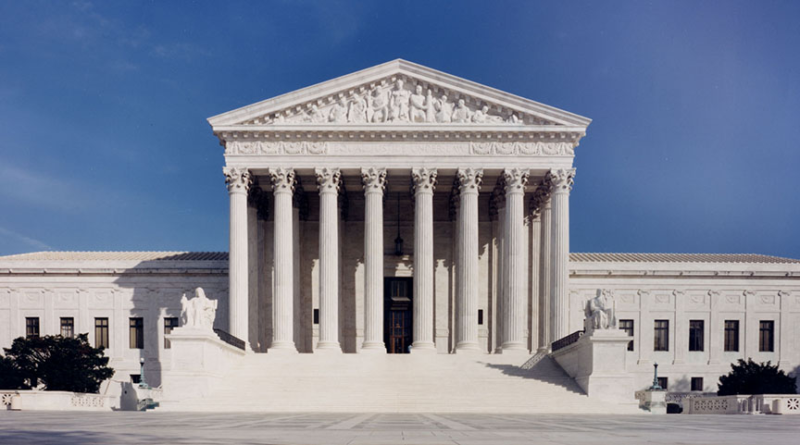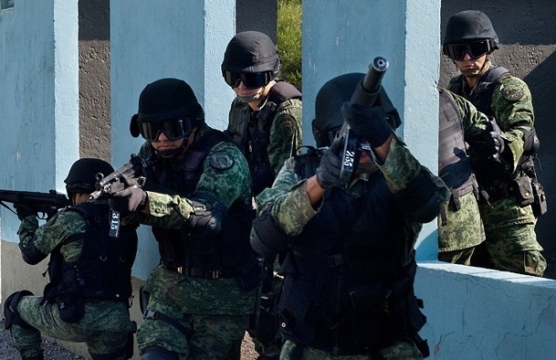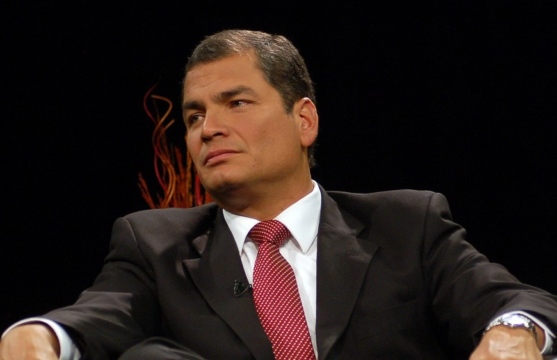IACHR Report on Citizen Security & Human Rights
Citizen security remains a top concern for most Latin American governments as crime and violence spiral out of control and cripple political and economic institutions in the region.
A Daily Publication of The Dialogue
The U.S. Supreme Court on June 24 struck down the landmark Roe v. Wade decision that for nearly 50 years had constitutionally guaranteed a woman’s right to have an abortion. Since the beginning of the 21st century, Western Hemisphere countries including Argentina, Chile, Colombia and Mexico have expanded their legal frameworks to include sexual and reproductive rights. However, others, such as El Salvador, Nicaragua and now the United States have become more restrictive on rules related to abortion. What influence will the U.S. Supreme Court decision have on Latin American and Caribbean countries as they consider questions related to abortion, access to contraception and other reproductive rights? What factors are influencing these two divergent trends in the region with regard to reproductive rights? How prominent are reproductive rights in Latin American countries’ politics? Looking ahead, which countries in the region might expect to see the most transformative changes on this issue?
Joan Caivano, senior advisor at the Inter-American Dialogue, and Jane Marcus-Delgado, professor at the City University of New York: “For the first time in U.S. history, the Supreme Court decision to overturn Roe v. Wade revokes a right previously granted. The move has sent shock waves globally, eroding U.S. credibility on human rights and curtailing progress on gender-based issues. This is a pivotal loss that severely compromises the United States’ status as an example and inspiration for those striving for reproductive justice. In the 1990s, an explosion of international conferences pushed the world to consider women’s rights as human rights. The gatherings focused attention on the public health risks and personal consequences of unsafe abortions, influencing domestic legislation in Latin America and the Caribbean. At the same time, the rising tide of conservative religious movements and policies such as the U.S. Global Gag Rule promoted an antiabortion agenda, resulting in a total abortion ban in several countries. Since 2000, countries such as Argentina, Chile, Colombia, Mexico and Uruguay have seen an expansion of reproductive rights, while others (El Salvador, Nicaragua, Haiti and Honduras), have eliminated previous exceptions to a total prohibition of abortion. The recent U.S. reversal will invigorate Latin America’s antiabortion activists, dramatically increasing momentum for their cause. Conversely, the pro-choice movement will see a surge of the ‘green wave’ throughout the region and perhaps even into the United States. At the same time, the availability of nonsurgical abortion medications will spur the growth of transnational networks, as people seek to terminate unwanted pregnancies across borders. So, the pertinent question might be: How will Latin America’s experience energize U.S. pro-choice activists? The call for justice and human rights transcends frontiers.”
Leo Perez, director of Collection for the Church in Latin America for the United States Conference of Catholic Bishops: “I was in Buenos Aires in 2020 when the Argentine Congress legalized abortion. The outcome was not what I hoped for since I believe as a professor of moral theology that life begins at conception. But what I saw in the pro-choice street marches reminded me of what I had seen in the United States: so many young people formed in a secularized culture that was free from a traditional religious ethos. Then, in recent days in Washington, I experienced something different. The U.S. Supreme Court in its Dobbs decision was a movement toward time-honored beliefs in the sanctity of human life, where many young people had worked and prayed for more protections for the unborn. I know that countries such as Argentina, Chile and Mexico have been moving toward a secular society and away from the sacred truths of their history. In the United States, our Supreme Court’s decision has made cultural warriors even more angry and sometimes violent. I suspect that Latin America will follow the same trajectory as here, where there may be more violence and less reasoned reflection and civil dialogue on important life issues. I was heartbroken to see young people burning historic churches when Chile experienced social upheaval in 2020. I suspect that more Latin American countries will be further polarized, and violence may increase. My prayer is that all sides will continue to discourse in a democratic context so that our shared future will be one of dialogue and not destructive polarization.”
Carolina Jiménez Sandoval, president of the Washington Office on Latin America: “The U.S. Supreme Court decision striking down Roe v. Wade has turned back the clock on human rights by decades. Despite the many advances they secured over recent years, women’s movements in Latin America must take note. The region still has a long way to go to ensure that reproductive autonomy and gender justice are a reality for all. El Salvador, Honduras and Nicaragua still have a complete ban on abortion, and other countries only allow for limited access. However, recent progress by some of the largest countries in the region, namely Argentina, Colombia and Mexico, shows that women’s rights movements in Latin America have been effective at sharing lessons, organizing and advocating for reproductive rights. The U.S. Supreme Court’s decision has shown, sadly, that people’s agency over their own bodies in a democratic society is at constant risk and that our rights can be attacked and even taken away, especially in countries where the agenda of conservative and religious groups is often intertwined with that of political parties. This ruling has made it crystal clear that we should never take our rights for granted. So, what’s next? We are likely to see antiabortion movements (and their political allies) in Latin America and the Caribbean emboldened and re-energized. This is why working to ensure judicial independence, including the appointment of judges based on pro-human rights and non-politicized criteria, will have to become a key strategy of groups working on reproductive rights. In 2019, the estimated number of unsafe abortions in girls aged 15-19 years in Latin American and the Caribbean was an alarming 876,000. For them, and for the thousands of people who deserve the right to choose, the fight for access to safe abortion must continue.”
Druscilla Scribner, professor of political science at the University of Wisconsin–Oshkosh: “The majority decision in Dobbs v. Jackson Women’s Health Organization highlights the importance of what is, and is not, included in a constitution. While U.S. Supreme Court decisions are sometimes cited by Latin American jurists, the legal basis for reproductive rights in individual countries such as Colombia, Argentina and Mexico is found more broadly in national constitutions and international human rights conventions. Rights to equality, autonomy, dignity and bodily integrity serve to anchor sexual and reproductive rights. Chile is in the process of rewriting its constitution. In March, the Constituent Assembly decided to explicitly include sexual and reproductive rights in its final draft, which faces a ratification process in the coming months. Dobbs is a major win for the pro-life and personhood movement in the United States. That success is built on effective political strategies and messaging that is replicable by emboldened pro-life advocacy groups in Latin America where the religious right is politically strong, such as Brazil. The successful legalization of abortion in countries such as Argentina and Mexico is the result of years of advocacy at the state and national level that benefited from popular mobilization on social justice issues including poverty, systemic disadvantage and sexual violence that brought people to the streets and placed women’s personal stories squarely in the media and on the political agenda of the center-left. Efforts to decriminalize abortion, increase access to legal abortion and address illness and death from unsafe abortion will continue to face political challenges in the region.”
 The Latin America Advisor features Q&A from leaders in politics, economics, and finance every business day. It is available to members of the Dialogue’s Corporate Program and others by subscription.
The Latin America Advisor features Q&A from leaders in politics, economics, and finance every business day. It is available to members of the Dialogue’s Corporate Program and others by subscription.
Citizen security remains a top concern for most Latin American governments as crime and violence spiral out of control and cripple political and economic institutions in the region.
Since the outbreak of the drug war, Ciudad Juárez has been plagued by unfathomable levels of violence and corruption, leading to thousands of human rights violations.
In June, President Correa issued a decree creating new procedures for NGOs to obtain legal status. What are its implications?
 The U.S. Supreme Court last month overturned its landmark 1973 Roe v. Wade decision that had constitutionally guaranteed women access to abortion. // File Photo: Supreme Court of the United States.
The U.S. Supreme Court last month overturned its landmark 1973 Roe v. Wade decision that had constitutionally guaranteed women access to abortion. // File Photo: Supreme Court of the United States.

